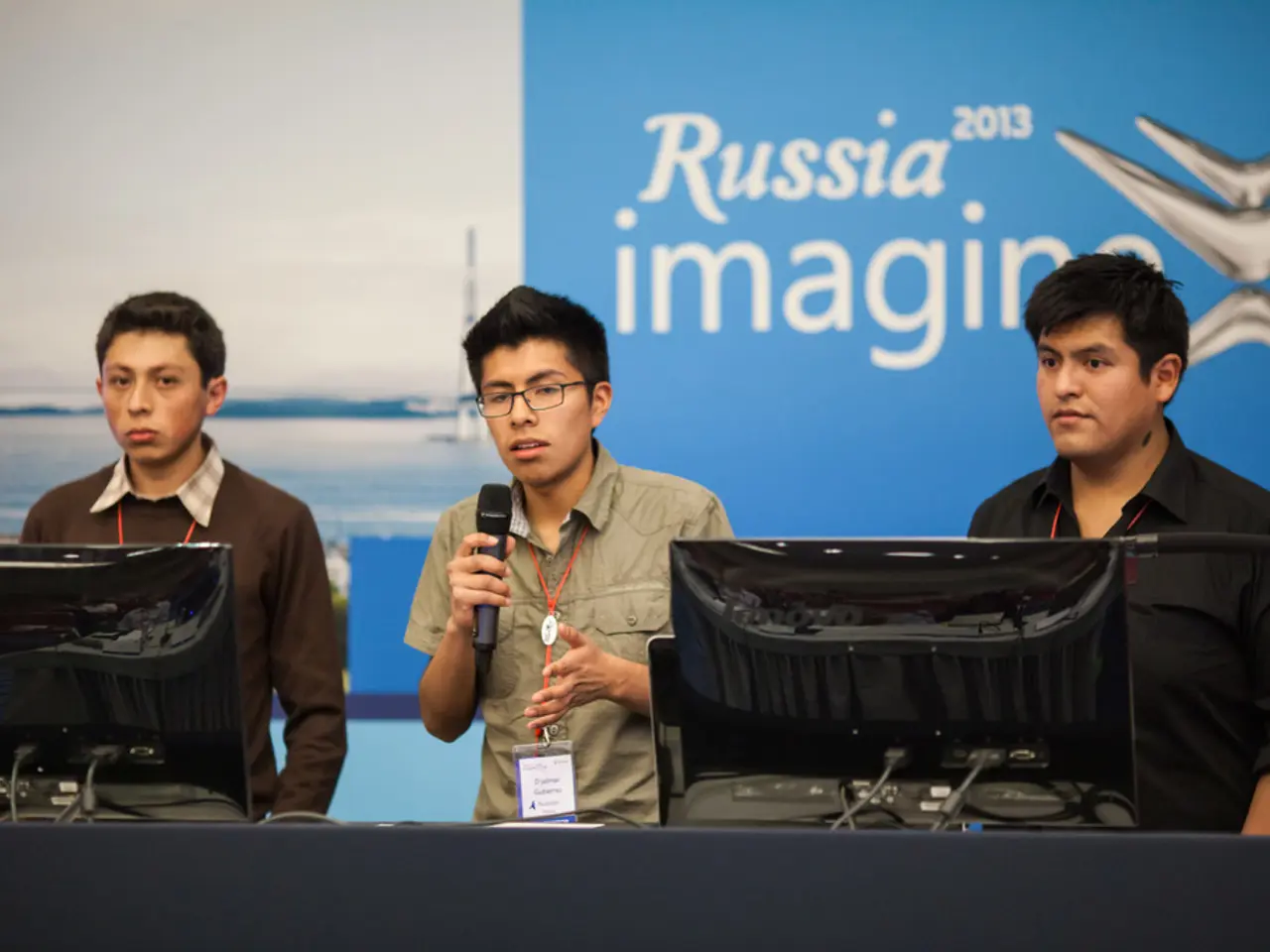Assurance for Kiev by Europeans; Absence of American Troops Affirmed
In a significant development, plans for security guarantees for Ukraine from the United States and European countries are taking shape. The proposed measures involve the establishment of a European-led force supported by U.S. military assets, aimed at providing Ukraine with robust defense capabilities after a potential peace deal with Russia.
The discussions were initiated during a meeting between Ukrainian President Volodymyr Zelenskyy, US President Donald Trump, and European political leaders. Trump expressed his support for security guarantees for Ukraine but did not provide specific details after the Washington meeting.
The European-led force would consist of tens of thousands of troops from various European countries, operating alongside trained Ukrainian forces behind a demilitarized zone patrolled by neutral peacekeeping troops. The U.S. would provide strategic enablers such as intelligence, surveillance, reconnaissance (ISR), command and control systems, air defense, aircraft, logistics, and ground-based radar to back the European troops deployed in Ukraine.
European leaders, including Chancellor Friedrich Merz, have proposed an "Article 5-like" framework as part of these guarantees. This framework, similar to NATO's collective defense pact, aims to deter future Russian aggression. However, detailed specifics remain limited.
NATO and U.S. military leadership are actively discussing coordinated military plans to uphold these guarantees. The strategy emphasizes a multi-layer defense: strengthening Ukraine’s armed forces as the first layer and backing them with European and U.S. security commitments as the second.
Russia, however, has repeatedly rejected the idea of NATO troops being stationed in Ukraine as part of any security agreement. This remains a key diplomatic obstacle.
Security guarantees are a critical element of ongoing negotiations aimed at achieving a peace agreement with Russia. They provide Ukraine a credible defense posture to prevent renewed military assaults and help stabilize the post-conflict security environment. The combination of Ukrainian defense capability, European troop presence, and U.S. strategic support intends to establish a durable deterrent against future Russian offensives, thereby facilitating a sustainable ceasefire or settlement.
Chancellor Friedrich Merz has emphasized the need for the whole of Europe to participate in these security guarantees for Ukraine. The EU Council President António Costa has spoken of growing momentum regarding these guarantees and called for a protection promise similar to Article 5 of the NATO treaty with continued US engagement.
Meanwhile, French President Emmanuel Macron has warned against rushing into a peace treaty without guarantees, stating that "this peace must not be rushed and must be secured by solid guarantees, otherwise we will be back to square one."
[1] Source: Reuters, "U.S. and European allies discuss security guarantees for Ukraine", 1st April 2023. [2] Source: Financial Times, "European leaders push for Article 5-style guarantees for Ukraine", 2nd April 2023.
Read also:
- Weekly happenings in the German Federal Parliament (Bundestag)
- Southwest region's most popular posts, accompanied by an inquiry:
- Discussion between Putin and Trump in Alaska could potentially overshadow Ukraine's concerns
- Massive 8.8 earthquake hits off the coast of Russia's Kamchatka Peninsula, prompting Japan to issue a tsunami alert.







